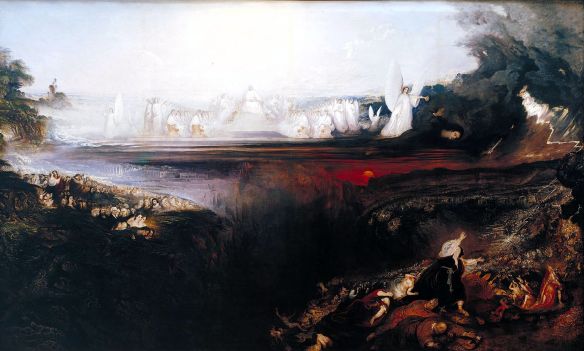He shouldn’t have said that… Doesn’t she know what she’s done… How dare the leadership make that decision without… Why won’t [fill in name] apologize for something clearly against… And we go on and on. Now, it could be that they’re plumb wrong. But, maybe those people know something we don’t? Perhaps, they’ve made their choices and are fulfilling their destinies. Any which way, we must always have before us this admonition, which starts out this way:
Why do you pass judgment on your brother? Or you, why do you despise your brother? For we will all stand before the judgment seat of God. Romans 14:10 English Standard Version (ESV)
Calvin counsels that we should exercise humility and forbearance:
But you, why do you, etc. …First, by the term brother, he checks this lust for judging; for since the Lord has established among us the right of a fraternal alliance, an equality ought to be preserved; everyone then who assumes the character of a judge acts [against reason].
Secondly, he calls us before the only true judge, from whom no one can take away his power, and whose tribunal none can escape. [In the same way that] it would be absurd among men for a criminal, who ought to occupy a humble place in the court, to ascend the tribunal of the judge; it is absurd for a Christian to take to himself the liberty of judging the conscience of his brother…
As we discussed in our last post, the visible church is populated by both wheat and chaff, between which, we cannot reliably discern except by their going out from us, therefore Calvin says:
As I live, etc. …The word of God has ever had its enemies, who have been perversely resisting it, and its despisers, who have ever treated it with ridicule, as though it were absurd and [mythological]. Even at this day there are many such, and ever will be.
It hence appears, that this prophecy is indeed begun to be fulfilled in this life, but is far from being completed, and will not be so until the day of the last resurrection shall shine forth, when Christ’s enemies shall be laid prostrate, that they may become his footstool. But this cannot be except the Lord shall ascend his tribunal: he has therefore suitably applied this testimony to the judgment-seat of Christ…
Finally, he calls to mind both scriptures: “Let anyone who thinks that he stands take heed lest he fall” and “It is before his own master that he stands or falls. And he will be upheld, for the Lord is able to make him stand,” by his saying:
Every one of us, etc. This conclusion invites us to humility and lowliness of mind: and hence he immediately draws this inference, — that we are not to judge one another; for it is not lawful for us to usurp the office of judging, who must ourselves submit to be judged and to give an account.
From the various significations of the word to judge, he has aptly drawn two different meanings. In the first place, he forbids us to judge, that is, to condemn; in the second place, he bids us to judge, that is, to exercise judgment, so as not to give offense.
He indeed indirectly reproves those malignant censors, who employ all their acuteness in finding out something faulty in the life of their brethren: he therefore bids them to exercise wariness themselves; for by their neglect [of their obligations to serve God and fellow believers] they often precipitate, or drive their brethren against some stumbling block or another.
Therefore, let us not pass judgment on one another any longer, but rather decide never to put a stumbling block or hindrance in the way of a brother.
The Last Judgment, from 1536 to 1541, Michelangelo (1475-1564), In the Public Domain in the United States

